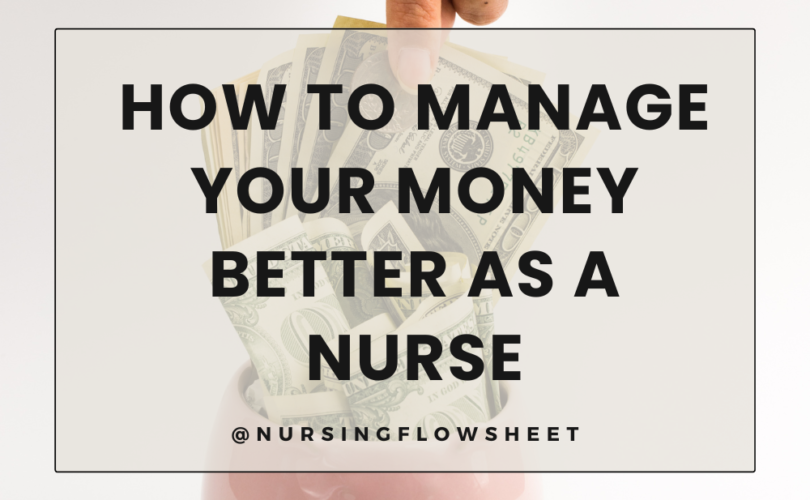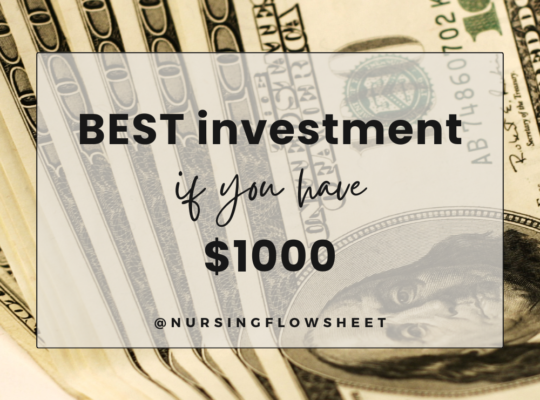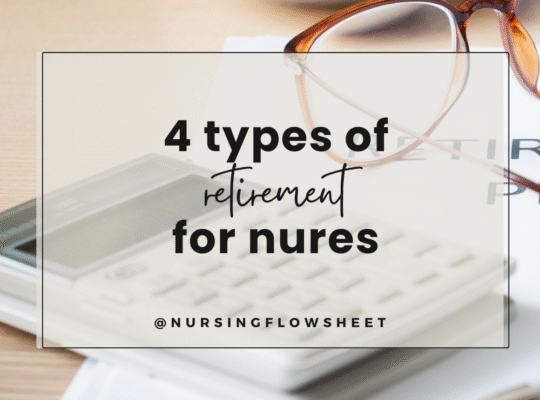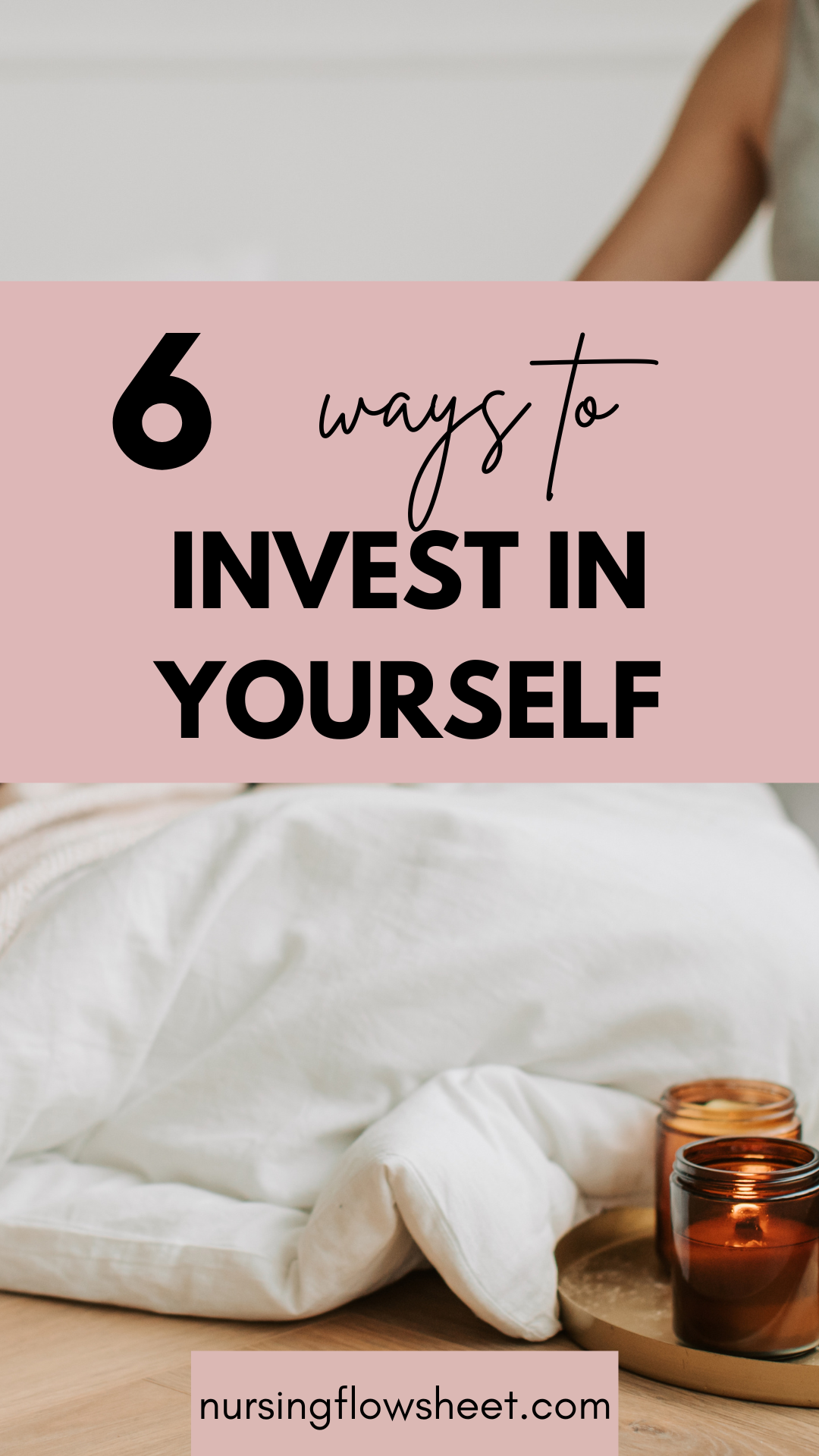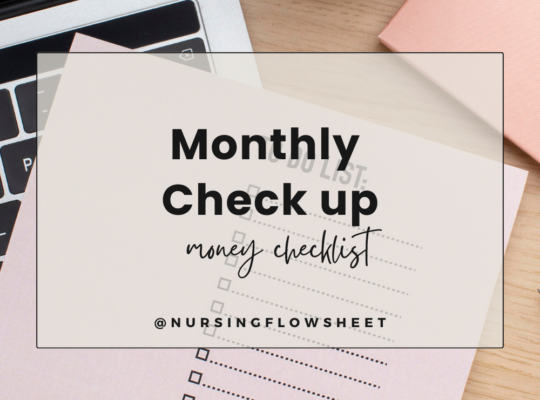There has been a discrepancy in nursing pay and how it’s portrayed in social media but the important factor to nurse salary is how well you manage your money as a nurse. Growing up, talking about money or finance has always been taboo in our culture (Asian household). I don’t know why but my parents never sat down with me and discussed topics like investing, retirement, etc. I was just always told to save money and don’t spend more than I make. While those are very valuable lessons in personal finance, there’s just more to it than just “saving”.
New Grad Money Experience
Before I became a nurse/ nurse- practitioner, I was working at Forever 21 making minimum wage. At that time, I think I was only making around $8 per hour. I also worked part time as a student assistant at our university to get some extra cash while I take my nursing courses. I am very grateful for parents who supported my education financially so I never had to take out loans for my undergrad. ‘
When I started to make a “big girl paycheck”, I got a little reckless and started buying everything I wanted. Instead of getting a practical new car, I got a new Infiniti G37 Coupe. It looked cool at the time. It was only two- doors and the mileage was terrible. I was paying around $700 a month with insurance for that car. Later on, I decided to sell it and get my reliable Subaru Impreza.
All my money I made in the first 8 years of my career ~ went to a savings account that yielded less than 0.5% of interest, travel funds, branded purses & material things that were not necessary.
Learning the hard way
I realized a few years ago that I am already 30, and although far away ~ I need to think about my retirement. While I love my job and truly able to get fulfillment from it, I don’t want to work forever. I started watching personal finance videos, started tracking my spending ~ actually budgeting. I invested more than I save. I cut down on unnecessary purchases but still made room to enjoy the money I make.
I wish I had done this sooner.
How to Improve your Finances as a Nurse
These are advice I wish somebody told me before. Now, I want to share it with you as your (big sister or auntie)
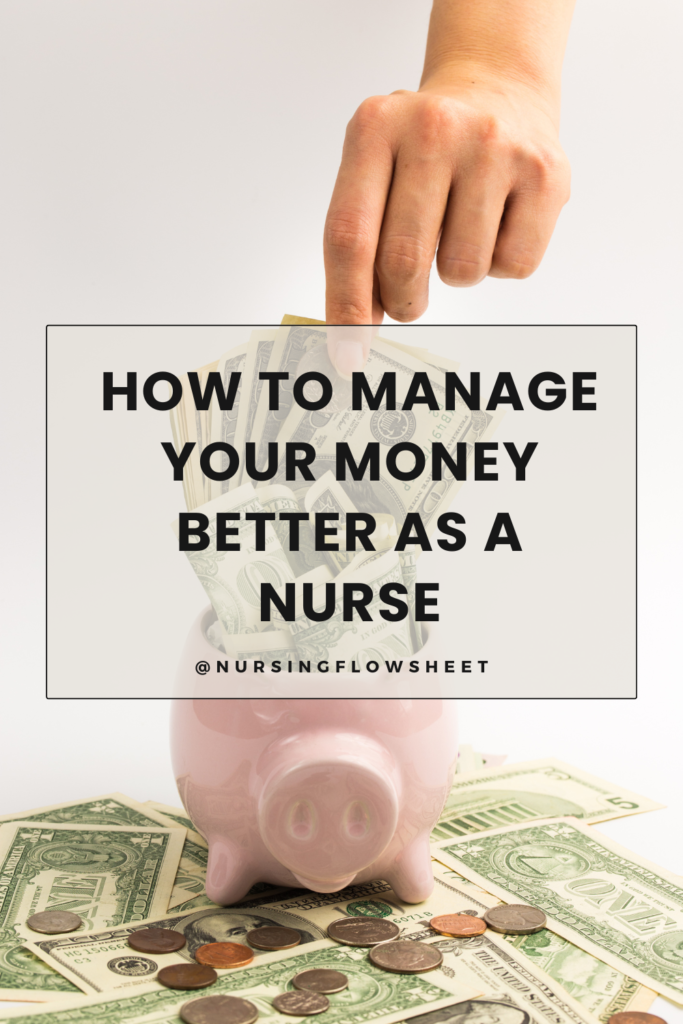
1. Spend less than what you make; budget – This is what my parents taught me. It’s pretty straight forward. I am not a big budgeter (ie. have excel sheets) ~ I am more flexible. I have a general idea of how much my expenses are and how much I make. I do keep track of my spending though. Having an app like Mint makes you accountable with purchases. Sometimes I’d look at it and be like “OMG I have been spending $100-$200 every week on Target” (true story lol)
2. Investing > Save. They are both important, but I would rather invest my money now than save it. I made the mistake of keeping my savings at Wells Fargo and Chase Bank. I probably only got $1 in interest for the money I kept in there for 8 years. Compound interest, brokerage accounts, IRAs were foreign terms for me. Being financially literate really is an advantage and is something that everyone should learn. What I did was I watched videos and I read books. Some books I would recommend for investing or personal finance are: Rich dad, Poor dad by Robert Kiyosaki, Personal Finance 101 by Alfred Mills, and Spend Well, Live Rich by Michelle Singletary to name a few. You should also be investing in yourself AKA retirement fund. This usually is automated at your workplace. However, certain accounts like ROTH IRA is not.
Read: Benefits of having a ROTH IRA account
3. Emergency Fund. Sh*t will hit the fan when you least expect it. You’ll never know what’s going to happen so it’s always good to be prepared and have safety net financially. What I did to set up my emergency fund is I automated my transfer to it until I reach a specific amount. How I determined the amount is by calculating all my expenses (bills, mortgage) and multiply it by 3-6 months. This will give me a sense of relief if ever I lose my job, or get sick and unable to work. Another tip is I put my emergency fund in a higher interest yield account like Capital One or Ally Bank.
4. Pay off your debt. I am still paying off my student loans from Nurse Practitioner school. I accrued about $40,000 in student loans after I graduated, and that has been almost 4 years ago. I am down to less than $20, 000 now. I am slowly paying it off, but thinking about the interest it has accumulated ~ I think I plan on paying it all off of this year. You can also refinance your loans if you took out private ones. My loans were initially >6% and now it’s 2.9%. It makes a big difference in monthly payments. I also pay off all my credit card bills every month.
5. Lastly, my take on personal finance is not being too hard on yourself when it comes to money. It’s very important that we still enjoy the fruits of our labor. Being a nurse or working the healthcare field is stressful enough. You could still be financially smart without depriving yourself of “that cup of coffee from starbucks” or that new Chanel purse, or more plants for your living room. I believe that you could still be responsible.
As long as you have an emergency fund, you put money in retirement, pay off your debts , your bills are paid~ you should reward yourself with something you have been working to get. <3

